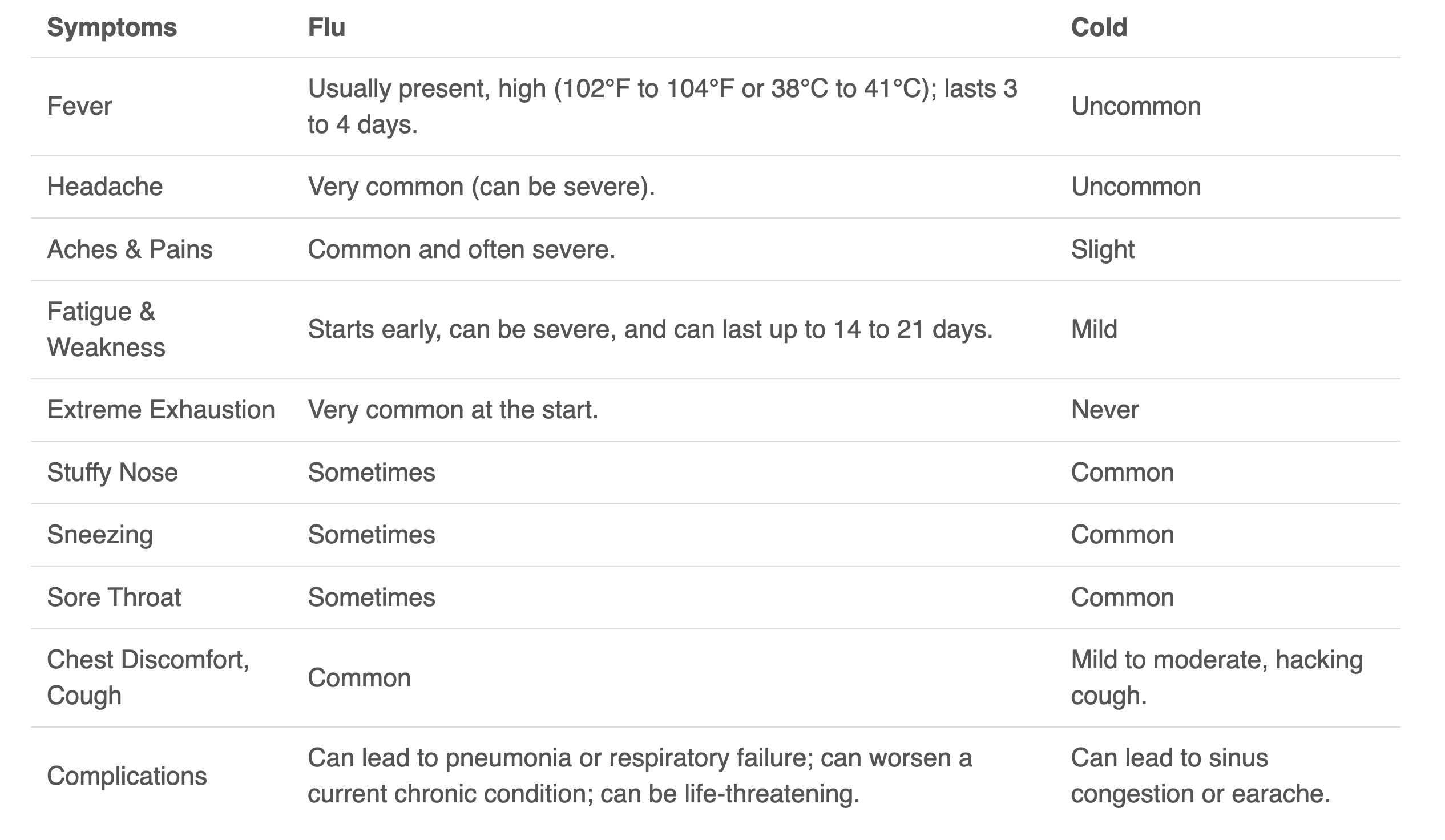Cough & Cold Season
Influenza
Influenza, just like the common cold, is a viral respiratory infection that affects the nose, throat and lungs. Viruses are spread from person to person through airborne droplets that are sneezed out or coughed up by an infected person. In some cases, the viruses can be spread when a person touches an infected surface (e.g., doorknobs, countertops, telephones) and then touches his or her nose, mouth, or eyes.
Many people confuse the flu with a bad cold.
Influenza- Commonly Referred to as "the flu"
The peak time for the flu is November to April which is called the flu season. Hospitalization and death can occur due to the flu mostly among high-risk populations, such as those with medical conditions (diabetes or cancer) or weakened immune systems, seniors or very young children.
There are three types of influenza viruses; A, B and C. Type A influenza causes the most serious problems in humans.
Common Cold
There are over 200 different known cold viruses. In Canada, the peak times for colds are at the start of the school year in the fall, in mid-winter, and again in early spring.
Children catch approximately eight colds per year, adults about four, and seniors about two.
Differences

People infected with an influenza or cold virus become contagious 24 hours after the virus enters the body (often before symptoms appear). Adults remain infectious (can spread the virus to others) for about 6 days, and children remain infectious for up to ten days.
syMPTOMS of Influenza
Sudden onset of fever (with chills), and aching muscles or joints
A few hours later, a dry cough, headache, stuffy, running nose and extreme fatigue or tiredness begins
Most symptoms last five days or longer
Fatigue may linger after other symptoms fade
wHAT TO DO IF YOU HAVE THE FLU
- Stay home until your symptoms begin to go away.
- Cover your mouth and nose with a tissue when coughing or sneezing. Throw the used tissue in the garbage immediately and wash your hands with soap and running water.
- If tissues are not available, cough or sneeze into the upper sleeve or elbow of your clothing to trap the droplets.
- Do not visit people in hospital or in retirement or long-term care homes.
pREVENTION
- Wash your hands frequently with soap and warm running water, especially before eating or preparing food, and after blowing your nose or using the washroom.
- Keep an alcohol-based hand sanitizer (gel or wipes) handy at home, work and in your car to clean your hands regularly.
- Get your flu shot
- Immunization for influenza (flu) is recommended because:
- Flu symptoms are more significant than those of a common cold.
- It easily spreads to vulnerable people, including those with chronic illness and the elderly.
- The complications from the flu can be very serious.
For additional information, contact Waterloo Region Public Health Unit:
chd.region.waterloo.on.ca ›
